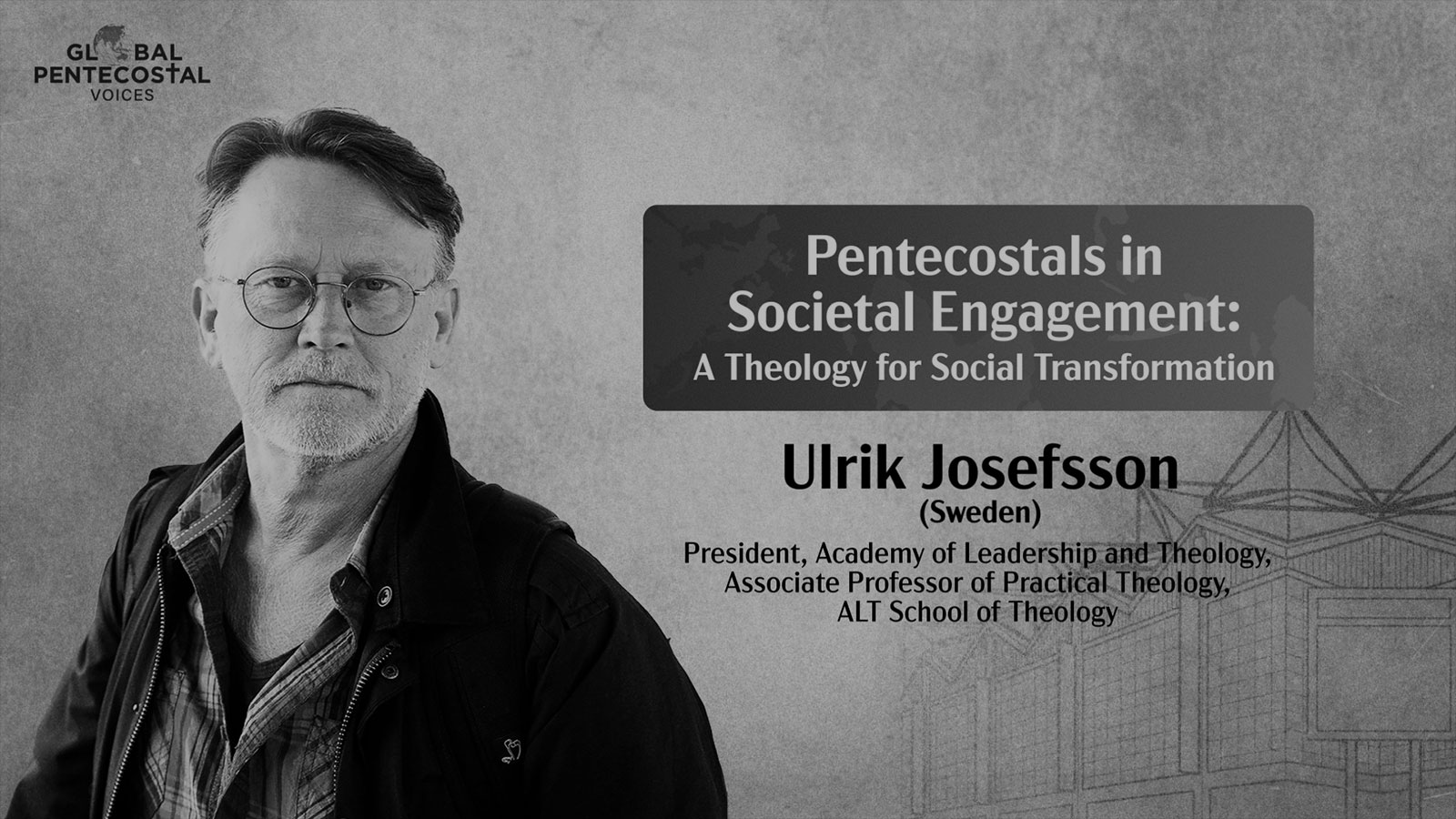President,
Academy of Leadership and Theology,
Associate Professor of Practical Theology,
ALT School of Theology

Ulrik Josefsson holds a PhD in theology and an MA from Lund University. His diverse background spans pedagogy, theology, and pastoral leadership, and he has worked in both pastoral and missionary service within the Swedish Pentecostal movement.
Dr Ulrik serves as the president of the Academy for Leadership and Theology (ALT) in Sweden and as an associate professor of practical theology at ALT School of Theology. His research primarily focuses on the historical and organisational evolution of Swedish Pentecostalism, examining how its distinctives have softened over time. He also explores the role of Pentecostals as contributors to society through a social theory lens.
Dr Ulrik has extensive international experience, including missionary work in Bolivia, and served as development manager for Pentecostal higher education in East Africa. He has co-authored influential studies including Enthusiastic Christianity & Fanaticism in Knutby (2021) and Swedish Free Churchism in the Pandemic (2022). In 2023, he took over as president at ALT, continuing his leadership in Pentecostal theological education.

The Christian faith is formed around Jesus. That is obvious when reading the Apostles’ Creed where the second article is significantly longer than the others. Faith in the Pentecostal tradition is even more Christ-centric with the formulations around the full gospel as an example. Jesus is the centre of the theological understanding. Pentecostalism gives attention to the Spirit, as doctrine, sign, and experience, but when we peel the onion, layer by layer, we find Jesus everywhere and in every layer—of course, as the foundation of statements, but also as a lived example and the core of experience. His transformational presence is unique but can also function as a theological paradigm for Christian life in this world. The aim of this paper is to investigate how Christian presence and engagement in society can be understood as incarnational and transformative. Pentecostalism is, in many ways, a practical and concrete type of religion. Some scholars have described it as entrepreneurial, active, or practical. For Pentecostals, faith is not merely an idea but a lived experience. In this sense, it is faith taking concrete form, or in other words, incarnational. Moreover, Pentecostals are eager to see radical change. Salvation, for them, means becoming a new creation; Spirit baptism fills believers with new power and possibility; the Church is the redeemed alternative community. The whole spirituality is about change, development, or transformation. The main question is: How can Pentecostal social engagement be understood as incarnational transformation?
© 2025 City Harvest Church. All Rights Reserved.